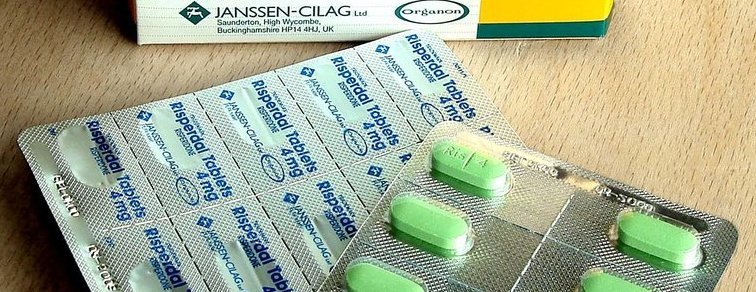In the first four trials over Risperdal, three ended with juries awarding a total of $4.75 million in compensation to boys with gynecomastia. One of the boys developed size 46 DD breasts.
On May 13, Johnson & Johnson (J&J) reached a confidential settlement in Moffat v. Janssen Pharmaceuticals, four days after it was set for trial.
On July 1, the fifth trial ended with a Philadelphia jury awarding $70 million to a boy from Tennessee who started taking Risperdal when he was 5 years old.
Three months later, J&J avoided a sixth trial in Philadelphia by settling a lawsuit involving “N.F,” a 19 year-old man from Texas who was prescribed Risperdal in 2004.
All of the jury verdicts are currently being appealed. Attorneys say a large-scale settlement is unlikely any time soon, as judges in Pennsylvania Superior Court consider a ruling that would allow more plaintiffs to seek punitive damages.
Risperdal was not approved for children until 2006, but lawyers say J&J marketed Risperdal “off-label” for children and knew it elevated levels of a hormone that causes breast growth.
Investigators showed how J&J used “creative math” to make it seem like the risk of gynecomastia was 0.8%, when in fact it was 4.5% of boys.
In placebo-controlled clinical trials, 80-90% of children on Risperdal had elevated levels of prolactin, a hormone that stimulates breast growth and milk production, compared to less than 10% of children on a placebo.
Risperdal is an anti-psychotic drug that was only approved for adults with schizophrenia in 1993. In a $2.2 billion settlement with the Justice Department, J&J admitted promoting Risperdal “off-label” for elderly patients with dementia from 1999-2005.
Risperdal controlled psychotic symptoms in dementia patients, but it also doubled their risk of stroke and sudden death. The FDA issued a “Black Box” warning label in 2013. Even so, Risperdal remains a popular chemical restraint for hard-to-handle nursing home patients.
J&J also lobbied state Medicaid programs to switch to Risperdal at $3,000 a year instead of equally-effective generics at $250 a year. Texas and 36 other states filed lawsuits for Medicaid fraud, and were eventually repaid as part of the $2.2 billion settlement in 2013.
The settlement was big, but nothing compared to the estimated $35 billion in global sales of Risperdal. The man in charge of the Risperdal marketing campaign, Alex Gorsky, was rewarded with a promotion to C.E.O. of J&J in 2012, with a $25 million yearly salary.
Source: Law360.
